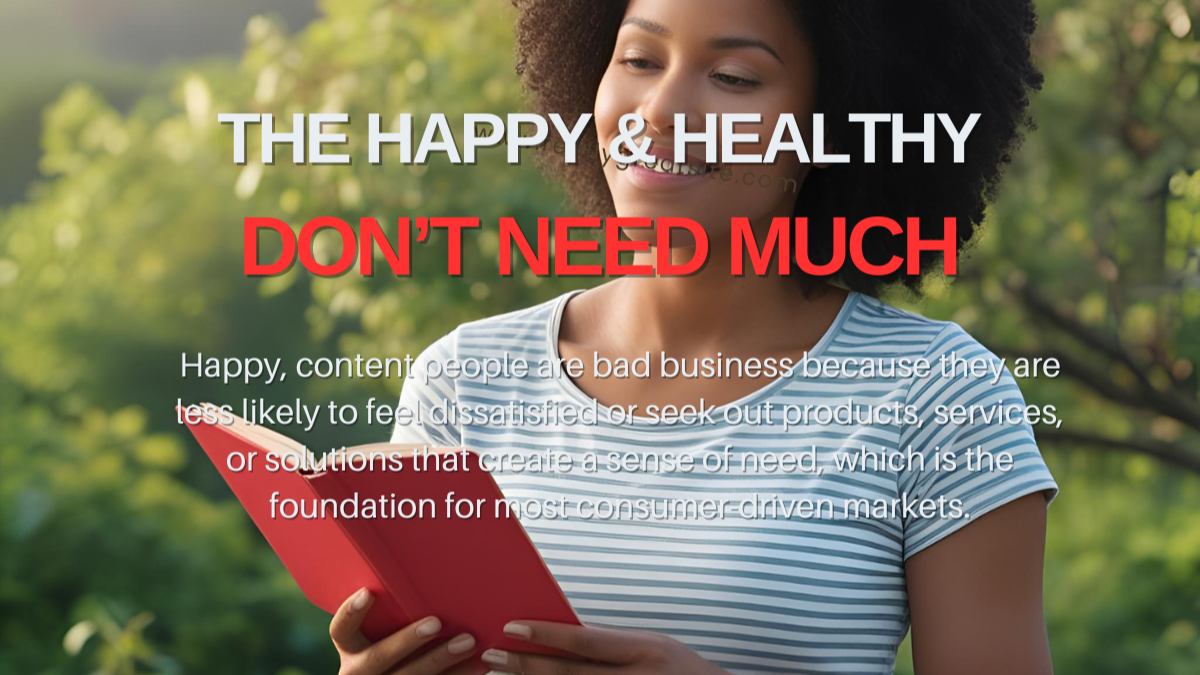
Want to be happy? Try resisting consumerism.
In a world obsessed with wealth, ostentatious luxury, and material possessions, the pursuit of happiness seems to be tied to money. However, new research from the University of Otago in New Zealand offers a radically different view: true happiness is found by resisting consumerism and embracing a simpler life.
The study, published in the Journal of Macromarketing , analyzed data from more than 1,000 people to understand the relationship between consumption and well-being. Its findings are clear and compelling: people who adopt sustainable lifestyles and resist the temptation to accumulate material goods are happier and more satisfied with their lives.
Voluntary simplicity: the passport to happiness
Researchers defined this lifestyle as “voluntary simplicity.” The study found that this path leads to happiness not simply by having less, but by the opportunities it provides for personal interaction and social connection . These are the true pillars of well-being.
Activities such as community gardens, resource sharing, and peer-to-peer lending platforms foster connections that money can’t buy. Although consumer culture tells us that happiness is associated with high income, science shows that materialism doesn’t increase long-term satisfaction or well-being.
Furthermore, the study highlights a serious problem: excessive consumption not only affects our mental health, but also the planet. Between 2000 and 2019, global material consumption increased by 66%, contributing to environmental degradation and global warming.
Less stuff, more relationships
Professor Rob Aitken, co-author of the study, clarifies an essential point: the key isn’t to get rid of all your possessions. The real secret to resisting consumerism and finding happiness is to satisfy your emotional and psychological needs through:
- Meaningful Relationships: Truly Connecting with Those Around You.
- Social connection: Feeling part of a community.
- Participation: Getting involved in activities that give you purpose.
- A sense of life: Discovering what really matters.
In a world where private yachts are the new status symbol, voluntary simplicity offers a powerful counter-narrative. It’s one that values connection over consumption, meaning over materialism, and “enough” over excess.
Happiness is not bought, it is built
Research from the University of Otago leaves us with an important insight: happiness isn’t found in stores, but in the relationships we build and the experiences we have. Luxury and the accumulation of possessions may offer instant gratification, but true satisfaction comes from a life of purpose and meaning.
We invite you to reflect: What truly makes you happy? Is it your latest purchase or a special moment with your loved ones? The path to happiness isn’t accumulating, but letting go of what you don’t need to make room for what truly matters.




